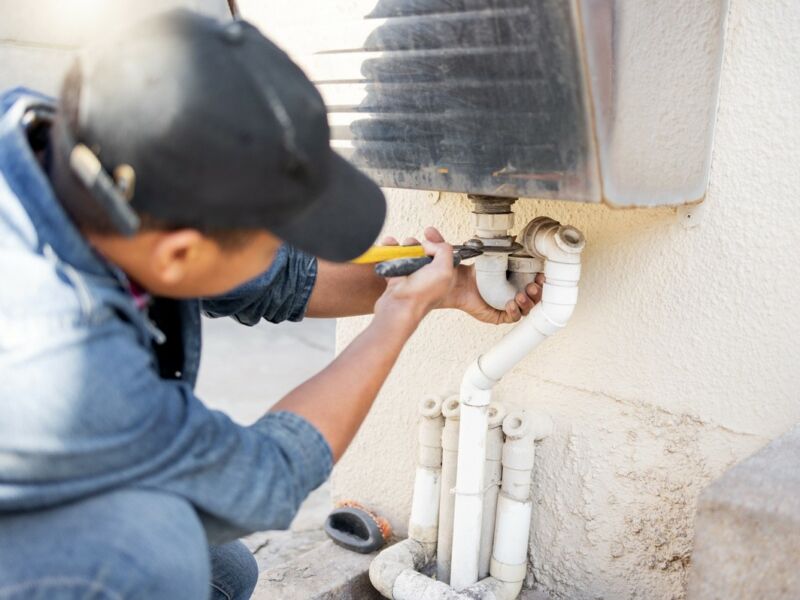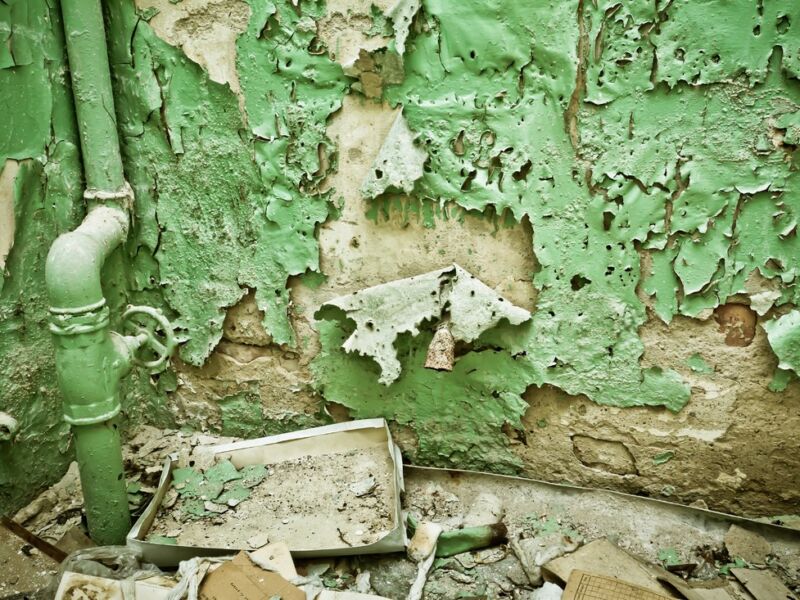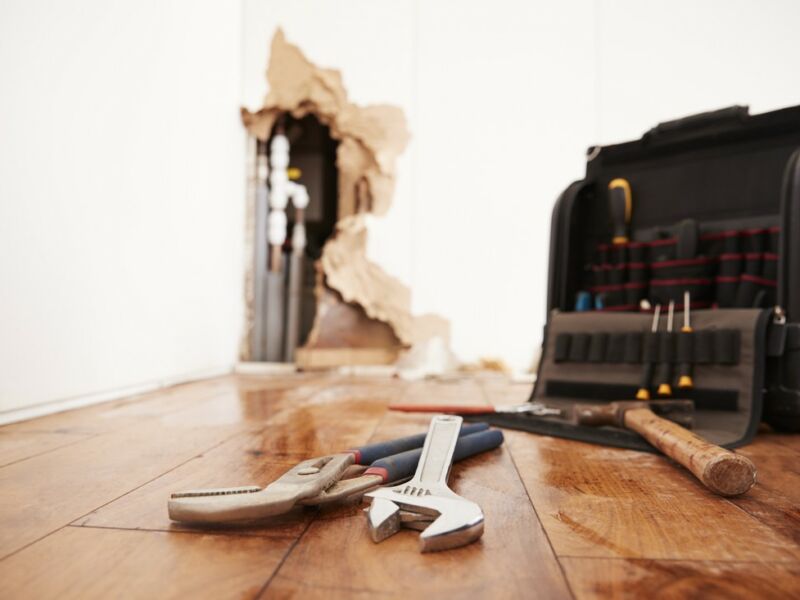
The Importance of Proper Pipe Insulation
Proper insulation is vital for preventing broken pipes. When pipes are exposed to extreme temperatures, they can freeze and burst, causing extensive damage to your property. Insulating your pipes helps protect them from temperature fluctuations and reduces the risk of them bursting.
Benefits of Proper Pipe Insulation

There are several benefits to insulating your pipes:
- Preventing Freezing: Insulation acts as a barrier that helps keep the temperature of the pipes stable, preventing freezing during cold weather.
- Reducing Energy Costs: Insulated pipes retain heat more efficiently, reducing the amount of energy required to heat water. This can lead to cost savings on your energy bills.
- Preventing Condensation: Insulation also helps prevent condensation on cold pipes, which can lead to moisture buildup and potentially damage surrounding structures.
- Minimizing Noise: Properly insulated pipes can help reduce noise caused by water flow, ensuring a quieter environment within your property.
Tips for Proper Pipe Insulation
Follow these tips to effectively insulate your pipes and minimize the risk of them breaking:
1. Identify Vulnerable Pipes

Identify the pipes in your property that are most vulnerable to freezing. This includes pipes located in unheated areas, such as attics, basements, crawl spaces, and outer walls.
2. Choose the Right Insulation Material
Select the appropriate insulation material for your pipes. Common options include foam insulation sleeves, fiberglass pipe wraps, and heat tape. Consult with a professional plumber to determine the best insulation material for your specific needs.
3. Seal Gaps and Cracks
Before applying insulation, make sure to seal any gaps or cracks in the walls or floors around the pipes. This helps prevent cold air from entering and affecting the temperature of the pipes.
4. Wrap the Pipes
Wrap the insulation material tightly around the pipes, ensuring there are no gaps or exposed areas. Secure the insulation in place using duct tape or zip ties.
5. Pay Attention to Outdoor Pipes
Outdoor pipes are particularly susceptible to freezing. Insulate outdoor faucets and exposed pipes with insulated covers or by wrapping them with heating cables.
6. Maintain Proper Heat
Keep the interior temperature of your property at a consistent level, even when you’re away. Set your thermostat to a minimum temperature to prevent pipes from freezing during colder periods.
7. Schedule Regular Inspections
Regularly inspect your pipes for signs of damage or deterioration. If you notice any issues, such as cracks or leaks, contact a professional plumber to assess and repair the problem before it worsens.
The Hazards of Broken Pipes
Broken pipes can lead to various hazards and consequences. Here are some important facts and statistics:
- According to Express Sewer & Drain Blog, water main repairs are sometimes completed on an emergency basis due to the risk of water contamination in damaged pipes.
- Broken pipes can result in severe water damage to your property, leading to costly repairs and potential mold growth if not addressed promptly.
- The pressure within the pipes can cause them to burst, resulting in water gushing into your property and causing significant structural damage.
- Clogged drains and pipes can lead to plumbing system malfunctions, affecting the functionality of fixtures like faucets and pressure valves.
- Environmental stressors, such as earthquakes and tremors, can cause severe pipe damage, particularly in properties located along fault lines.
Handling Broken Pipes Effectively
If you encounter a broken pipe in your property, it’s essential to take immediate action to minimize the damage:
1. Turn Off the Water
Locate the main water shut-off valve and turn off the water supply to your property to prevent further water flow.
2. Contact a Professional
Call a professional pipe repair service, such as JGW Group Water Damage Restoration Las Vegas at 725-240-0640, to handle the broken pipe repair. They have the expertise and equipment to diagnose the issue and perform the necessary repairs safely and efficiently.
3. Remove Valuables From the Affected Area
If possible, remove any valuable items or furniture from the area affected by the broken pipe to prevent further damage.
4. Contact Your Insurance Company
Notify your insurance company about the situation and inquire about coverage for the damage caused by the broken pipe. Follow their instructions regarding documentation and filing a claim.
Frequently Asked Questions (FAQ)
What steps can I take to prevent frozen pipes?
- Insulate vulnerable pipes
- Seal gaps and cracks around pipes
- Maintain proper heat in your property
What should I do if I discover a burst pipe?
- Turn off the water supply
- Contact a professional pipe repair service
- Remove valuables from the affected area
- Contact your insurance company
Proper insulation and regular maintenance are key to preventing broken pipes. By following the tips outlined in this article and seeking professional pipe repair services when needed, you can safeguard your property from the hazards and expenses associated with broken pipes.
For reliable and fast pipe repair services in Las Vegas, contact JGW Group Water Damage Restoration Las Vegas at 725-240-0640.
Sources:
Forbes
The New York Times
NPR
Meticulous Plumbing
Cove Leader Press
Nick’s Plumbing
JGW Group Water Damage Restoration Las Vegas
JGW Group Water Damage Restoration



